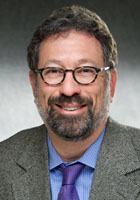Randomized clinical trials, including the National Lung Screening Trial that enrolled patients at the University of Iowa, showed that lung cancer screening with low-dose computed tomography (LDCT) reduced lung cancer mortality. In 2013, the US Preventive Services Task Force (USPSTF) gave a Grade B recommendation for LDCT screening of adults aged 55 to 80 with heavy smoking histories. While decreasing mortality, lung cancer screening also potentially causes harms related to false positives, radiation exposure, invasive diagnostic procedures, overdiagnosis, and incidental findings.
The Center for Medicare & Medicaid Services (CMS), in making their coverage determination, set the unprecedented expectation that a clinician and patient must discuss the benefits and harms of a LDCT screening in a shared decision-making visit. With new recommendations from the USPSTF published in the Journal of the American Medical Association expanding the group of people eligible, shared decision-making becomes increasingly important.
This is the argument advanced by Richard Hoffman, MD, MPH, professor and division director in General Internal Medicine, and two other experts in a recent Viewpoint also published in JAMA last week. Patients participating in shared decision-making, they argue, emerge more knowledgeable, with different preferences about screening, and report lower levels of decisional conflict. They emphasize that these discussions are crucial for considering a patient’s values and preferences when discussing complex screening decisions.
“The principle of respect for patient autonomy obliges clinicians to inform patients about the trade-offs involved in the decision to be screened for lung cancer,” the authors write.
Part of the new guidelines from USPSTF includes an expansion of lung cancer screening to previously ineligible patients, including people aged 50 to 54 years old and those with a 20 pack-year smoking history. Because this will include more Black people, who research suggests have a higher risk of developing lung cancer at an earlier age and with less tobacco exposure, Hoffman and his colleagues argue this “may improve health equity around lung cancer.” They recommend continuing patient-centered counseling and CMS reimbursement, expanded to include telehealth appointments, to ensure that populations vulnerable to lung cancer are receiving the care they deserve.
Hoffman worked with fellow researchers Daniel S. Reuland, MD, MPH, professor of General Medicine and Clinical Epidemiology at the University of North Carolina at Chapel Hill; and Robert J. Volk, PhD, professor of Health Services Research at the University of Texas MD Anderson Cancer Center.
